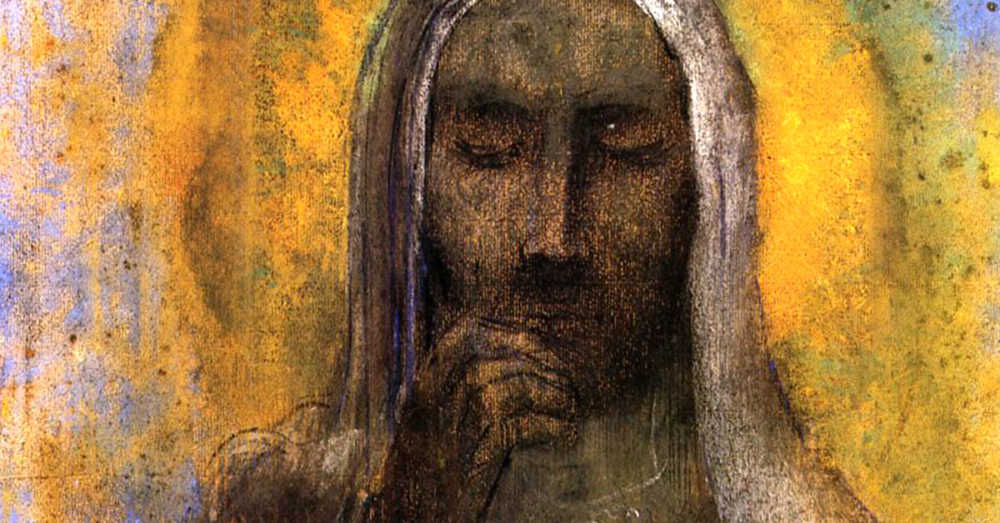We run our website the way we wished the whole internet worked: we provide high quality original content with no ads. We are funded solely by your direct support. Please consider supporting this project.

God’s Dream for the World
The future doesn’t yet exist—which is why it’s future instead of the present or past—this doesn’t mean I’m claiming the future is wide open. To the contrary, it’s very clear from Scripture that God has a great plan for the future, and this plan steers the course of history by setting limits on what can and can’t occur and influencing what comes to pass. God created the world and is now moving it to the fulfillment of a glorious dream.
We see God’s glorious dream expressed in Jesus’ prayer in John 17, which is the most outstanding prayer ever recorded, if you ask me. Jesus prays to the Father on behalf of all who will come to know him (which he hopes will be the whole world) (vss. 20, 23). He further prays to the Father that his followers may be “one…just as you are in me and I am in you” (vs. 21, emphasis added). He then proclaims that he has given us the same “glory” that was given him before the foundation of the world (vs. 22, 24), and he did this so that we may be one, just as he and the Father are one. “I in them and you in me,” he continues, “so that they may be brought to complete unity.”
Clearly, the “glory” Jesus refers to is the glorious loving unity of the triune God. And when his disciples reflect this glory, Jesus says to his heavenly Father, “the world will know that you sent me and have loved them even as you have loved me” (vs. 23, emphasis added). Jesus ends his prayer by telling the Father he will continue to make him known so that “the love you have for me may be in them and that I myself may be in them” (vs. 26).
What a dream! God’s vision for humanity is nothing less than for us to be participants in the perfect love that he is throughout eternity. He wants the love of the Trinity to be the replicated toward us, among us and through us to the whole world. God’s dream is for us to be in him, and he to be in us—in the same way the Father is in the Son and the Son is in the Father. The dream is for humanity to be loved by God, and to in turn love God, with one and the same love that is the eternal triune God.
I’m convinced this is what the Bible means when it says God makes us participants of the divine nature (1 Pet 1:4), for the divine nature is love (1 Jn 4:4). I’m also convinced this is why Paul repeatedly says that believers are placed “in Christ.” We don’t simply relate to God through Christ. We relate to God in Christ. We share in the Father’s relationship to the Son and the Son’s relationship to the Father. When we are saved, you might say, we are pulled into God and are eternally allowed to share in the ecstatic love that he eternally is.
I believe Paul is making the same basic point when he says that all things were created by Christ and for Christ. Christ was always intended to be the head of humanity, his “body,” and the means by which God united the cosmos together (Col. 1:15 -20). This is also why Paul taught that the grace that saves us was “given us in Christ Jesus before the beginning of time” (2 Tim. 1.9) and why Jesus said that the glory he gives to us was given him “before the foundation of the world” (Jn 17:24).
art: “Christ in Silence”
by: Odilon Redon
date: c.1897
Category: General
Tags: Jesus, Love, Trinity, Triune Love, Unity
Topics: Following Jesus
Related Reading

Change That Is Real
With the coming of Christ, which we celebrate during the Advent season, the Father, Son, and Spirit made a way for us to be incorporated into the triune fellowship. We are placed in Christ through the power of the Spirit. This doesn’t just change how God views us and relates to us. It changes who…

Sermon Clip: The Cross and the Tree
In this short sermon clip, Greg Boyd discusses how Christians should react to the world with love. In the Garden of Eden, Adam and Eve were tempted to eat from the Tree of the Knowledge of Good and Evil. They did this because they didn’t understand that God was protecting them. In this sermon, Greg…

What We Long For
Augustine once prayed, “You have made us for yourself, and our hearts are restless till they find their rest in you.” We all have an unquenchable yearning in our hearts, a yearning for nothing less than to share in God’s own eternally full life. This is why our deepest desires cannot be permanently satisfied by…

A Word About Sharing the Gospel From an Atheist
Jen J over at A Deeper Family wrote a little piece about how she felt convicted after this video was played during a sermon at her church. She makes some good points. Penn Jillette is a famous atheist, and I’m sure he encounters a lot of Christians trying to persuade him to come to God. It’s…

God’s Aikido Way of Defeating Evil
Greg continues his thoughts on the atonement with this installment highlighting the way God uses the evil intentions and actions of his enemies to bring about good. And because this strategy is based in love, the demons who encountered Christ could not possibly imagine what he was up to. They ended up participating in their…

God Became a Zygote
Has the Christmas story become so familiar that you’ve lost any sense of how spectacular it is? The great creator of the universe became a microscopic zygote. The all-powerful being who spoke the stars into existence came in a very small and vulnerable way. He crossed an infinite distance to become one of us. You can watch…
